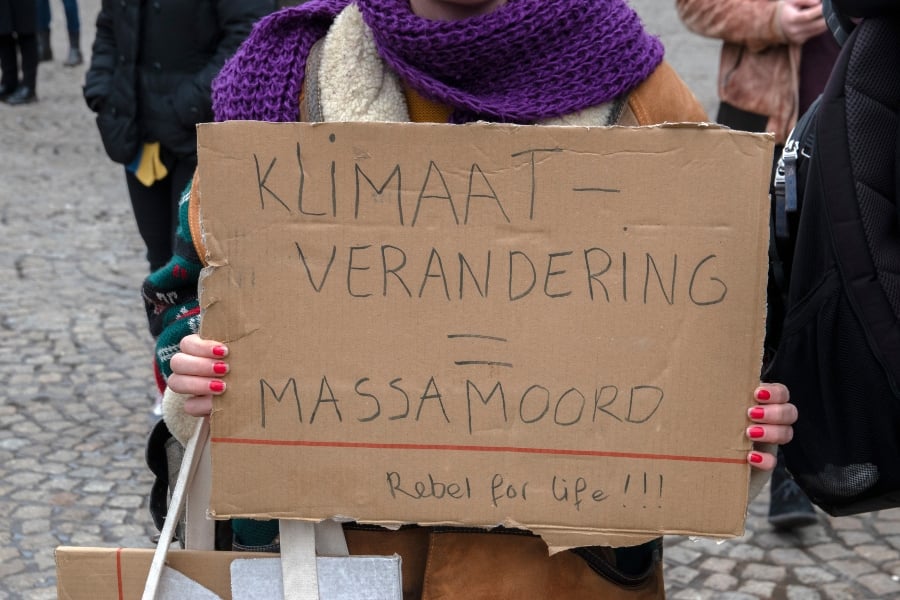Amsterdam has become the first capital city in the European Union to endorse the Plant Based Treaty.
The Dutch capital has joined the likes of Edinburgh, Los Angeles, and Norwich in pledging to spotlight food production in tackling the climate crisis.
Since launching in 2021, the Plant Based Treaty has now received support from 25 municipal governments worldwide.
Lea Goodett, from Plant Based Treaty Netherlands, told Plant Based News (PBN) that Amsterdam is showing “climate action leadership.”
“Almost every big city has a sustainability department or working group nowadays,” she added. “The problem is that most of the plans are not ambitious enough to offer a solution for the planetary crisis we are facing.”
Amsterdam leading the way
In an official document, city representatives acknowledged that “the way we produce, distribute, process, and consume food has a significant impact on the health of people and animals and contributes to the climate crisis.”
As a result, it affirms, the three goals of the Plant Based Treaty are necessary. These are “stopping new land use for industrial livestock farming, promoting more plant-based food, and restoring crucial ecosystems.”
“By signing the Plant Based Treaty, the municipality of Amsterdam supports the global call to cities, organizations, businesses, and residents to contribute to combating the climate crisis by changing dietary patterns,” the city’s declaration reads.

Governments around the world are taking action against the environmental impact of animal agriculture. According to Goodett, the Plant Based Treaty is “challenging cities to take bigger actions and to be a front runner to inspire their residents to adopt a healthy and sustainable plant-based diet.”
It is not only for environmental reasons that governments are plotting to move away from animal agriculture. Evidence is also growing of the health impact of meat and dairy. In the UK, a recent study found that the national health service could save £6.7 billion a year if everyone ate plant based. Health benefits also prompted Germany to commit to huge new investments in plant-based food last year.
Vegan Fridays
As well as signing the Plant Based Treaty, Amsterdam has adopted a motion that aims to make the city a world leader in plant-based foods. Amsterdam had already taken steps towards a plant-based future in 2021. That year, it released plans to help city-goers make at least half their daily diets plant based by 2030.
The new motion goes further. Tabled by the Dutch Party for the Animals, it will make the city work with public institutions like hospitals and community centres to improve the provision of plant-based food. This includes measures such as ensuring vegan options are available in all publicly funded institutions, and taking part in Vegan Fridays.
Goodett added: “The introduction of plant-based food initiatives like Vegan Fridays will make sustainable plant-based food accessible to all. This will improve our health as well as strengthen food security.”

Plant-based shift underway in Europe
In recent years, Europe has become a battleground in the debate around food system change.
The EU has long subsidized environmentally damaging industries. Notably, the common agricultural policy (CAP) takes up about a third of the bloc’s total budget. Given that animal agriculture is responsible for at least 16.5 percent of global greenhouse gas (GHG) emissions, propping up meat production is a growing risk in a rapidly warming world.
Instead, food system change can help turn the tide on the continent’s emissions. Last month, the European Scientific Advisory Board on Climate Change proposed that funding should be moved away from animal agriculture towards “lower-emitting products and activities.” In 2023, Denmark became the first European country to publish plans to transition towards a plant-based food system.
“A city endorsement is not just a signature but a commitment to implement meaningful actions,” Goodett told PBN. “With a European Capital like Amsterdam taking such a strong stance, it will be easier for other cities to endorse the Plant Based Treaty. We urge more cities to sign up to address food system impacts on the climate emergency.”






